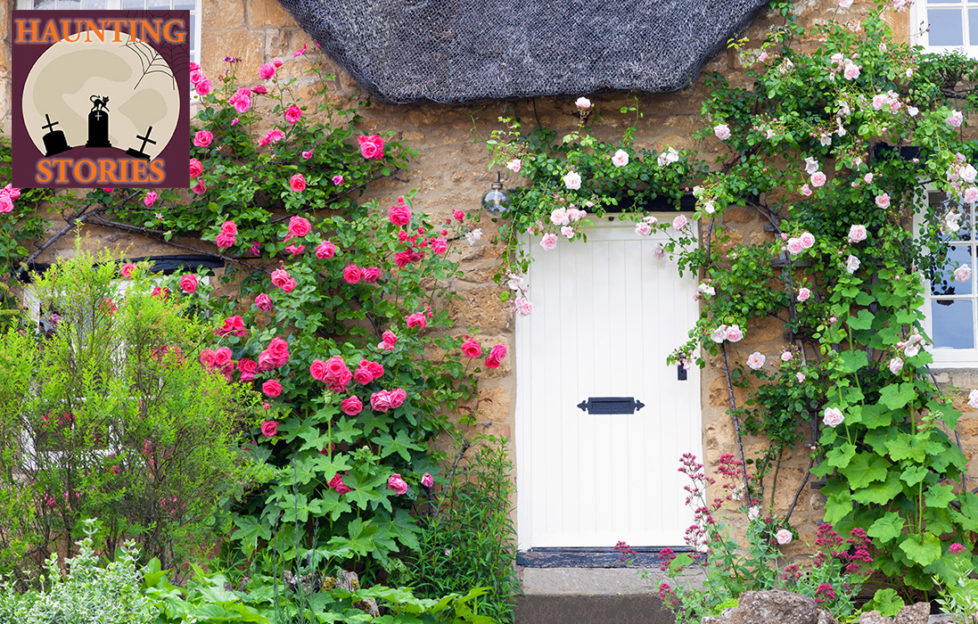Ideal Home

Who will help city girl Gemma, all alone with two small children in the country?
Paul and Gemma’s acquaintances were divided about their move to the country. Some of them, especially Gemma’s friends from the TV studios, thought it was a dreadful idea.
“Gemma,” they said with varying degrees of frankness, “this is madness.”
They thought of her pale suede boots, her Karen Millen jackets, her lisping posh voice, her sexy way with the producer and her dictatorial way with the floor manager – Gemma, the personification of Professional Urban Woman.
They pictured her in wellies and an anorak, pushing a buggy through the mud and they shuddered.
Some others were more enthusiastic.
“How brave!” they exclaimed. “How exciting! How lovely for the children, all that country air. We’ll have to come and visit you!”
Gemma herself was unsure. She found herself more and more unsure about everything these days.
Marriage seemed to have sent a series of shocks through her life, like the ground tremors associated with earthquakes, faint yet discernibly loosening the foundations.
Holly had produced a crack or two.
Holly was Paul’s daughter by his first marriage. She was four years old when Gemma first met her – a thin, dark-haired child in embroidered dungarees who clung to Paul and refused to eat.
The awful nagging doubt came into Gemma’s mind that perhaps she was “no good with children”.
She had got used to being thought good at things.
And now this, which she had not bothered to consider as a challenge, seemed to be defeating her.
She was five months pregnant. In desperation she bought Holly a dolls’ house.
Paul said it was all nonsense. Holly was still shy with her. Wait until the baby arrived, then everything would be all right.
But it wasn’t. She couldn’t feed Ben properly.
She tried to, because goodness knows she’d read enough books saying mother’s milk was best for the baby, best for her stomach muscles, best for mother and child bonding.
Ben cried half the night and she cried, too. There was nowhere to put the multi-positional buggy and the bathroom filled up with nappy rash cream and packets of baby wipes.
Holly came on a visit to see her new brother but things were no better.
She looked politely at bald Ben in his Babygro and even, after a little hesitation and encouraged by Paul, kissed the top of his head, but she clearly wasn’t interested.
By now Gemma had got to the stage when TV advertisements showing happy mothers and children reduced her to weak, warm tears of failure.
Then it was that Paul took it into his head to move out of London. A baby cooped up in a flat was ridiculous.
“Children need space,” he said. “So do you. It’ll make you feel better.”
She hoped that he was right.
The cottage was in a village where the commuter line was due to be extended, and was therefore a good buy. It was built of red brick, the paintwork was white and there was a front garden.
She bought a bird bath and some climbing roses from the local plant nursery and Paul bought an electric lawnmower.
The cottage was quite nice. She quite liked it. She looked out of the window and tried to convince herself.
It is nice here. It is nice to see all the trees and the fields and be able to be outside.
The village people still called it Nanny Browning’s Cottage after the old lady who used to live there, but she and Paul decided to change the name to Rosings.
Ben flourished. At first she was merely grateful that he had stopped his endless crying, she was too worn out with him to wonder why or how?
Paul said he’d told her so, children needed country air. All would now be well.
Ben spent part of his day in his pram on the patio, close to the garden door where she could watch him gazing at his toy windmill twirling in the breeze.
Now with Paul away at work, Gemma found she was sometimes almost bored. She even suggested that Holly might like to come to see the cottage, for she felt a new confidence as she brought Ben indoors and saw him laughing and smiling at her from his reclining chair.
Occasionally, however, he seemed to be smiling not at her but beyond her.
This gave her a passing twinge of unease. Was he all right?
As usual Paul brushed her anxieties aside, pointing out that the parenting books said that babies’ eyes did not focus accurately while they were very young. Ben was absolutely fine.
When Holly came to the cottage she, like Ben, seemed to change. Within a couple of days her pale, tight little face relaxed, she smiled, she ate and she played for hours with her dolls’ house.
“What did I tell you, darling?” Paul said. “Fresh air, sunshine, family atmosphere, all working a treat!”
One morning soon afterwards Holly and Ben were on the patio. Gemma decided to get out a dress for the first time in weeks, and spent a couple of minutes putting on some mascara and painting her lips with a lip brush.
Then she went to fetch the children in for their lunch.
She stood in the doorway and watched Holly laying out the dolls’ house furniture and sitting back on her heels as if waiting for approval and Ben smiling, always smiling. Neither of them had seen her and she began to feel the doubts again.
She called to them, the stress sounding in her voice. They looked up at her, startled.
Later she took them into the village, Ben in his buggy and Holly walking beside her.
“Is it right you’re giving the cottage a new name?” the postmistress asked her.
“Rosings,” Gemma agreed and then on an impulse she asked, “Who was Nanny Browning who used to live in our cottage?”
“Oh, she was a nice old lady.” The postmistress passed the stamps Gemma was buying across the counter. “Yes, she worked as a proper nanny for years and years, you know, for well-off families.
“When she got frail she moved to live with her niece, in one of the almshouses by the churchyard. But all the children loved her – she was always very good with children.”
The summer days were lengthening and some of the village people, walking past the garden fence, would wave to Holly and Ben. Paul was pleased.
“You see,” he said, “everyone is far more friendly here than in London.”
After a while Gemma began to notice particularly an old lady who would stop, smiling, by the gate. She was small and bent, leaning on her stick; she wore her hair in a bun and often had a knitted shawl around her shoulders.
“Who do you think she is?” Gemma asked Paul.
“Why don’t you say hello to her? Maybe she’d like to come in and have a chat. Perhaps she’s lonely.”
When she next saw the old lady, Gemma was settling Ben into his pram on the patio.
She waved but by the time she got down the path the small bent figure had moved away along the road.
In the village post office the postmistress said, answering Gemma’s question, “Well, that sounds like Nanny Browning. You’re favoured – she’s usually quite shy.”
“Oh.” Gemma glanced down at the children. “Really? I wish she would stop for a chat.”
Turning round to negotiate the buggy towards the door she noticed that two woman queuing behind her exchanged smiles with the postmistress.
She felt a prick of exclusion – were they sharing a joke?
She knew what Paul would say… she was imagining things.
On the way home Holly skipped, humming happily, along the verge.
Later that summer, Paul suggested an outing.
“We could go up to the manor,” he said. “They’re having a charity fair today – the signs are up all round the village.”
The manor house was not far away. They pushed Ben in his buggy and Holly travelled some of the way on Paul’s shoulders.
It was an old and beautiful house, the walls hung with creeper.
The former kitchen gardens were now village allotments and prizes for biggest vegetables and best scarecrow were to be presented at the Fair.
This afternoon the wide lawns were covered with stalls: tombola, second-hand books and bric-a-brac. The village band played and the sun shone.
Cream teas were being served in the barn and they found a table with a high chair for Ben.
The scones were scrumptious, the jam home-made and the cream came from the local farm.
Ben got jam on his face from ear to ear and Holly laughed.
Surprised, Gemma realised.
I’m happy!
Looking round she noticed a display of photographs on the wall with people clustering around it.
Leaving Paul in charge of the children, she went across to join the group.
The photographs were of the family who lived at the manor in its Edwardian heyday. Some showed formal groups on the steps, the women in long white tight-waisted dresses, their hats trimmed with ribbons and lace, the men with boaters and stiff collars, holding tennis racquets.
Other pictures were of children playing on the lawn, riding large-wheeled bicycles or swimming in the pond.
Then there was a group of the staff of the “big house”, gathered in the courtyard.
Their names and roles were listed beneath the photograph: Mr Ellercott, Butler; Mrs Tremell, Housekeeper; Mrs Grey, Cook; Nanny Browning.
Gemma paused and looked again. Yes, Nanny Browning.
She checked along the line of faces and there she was, surely the old lady who stopped at the garden gate, who smiled at the children, who used to live in their cottage.
She was seated, wearing a long white apron and holding a baby on her lap, all frills and flounces.
A cold shiver passed over Gemma. She hurried back to Paul and the children.
“Come and look,” she said. “Come and see these photographs.”
“What’s the matter?” Paul asked, seeing her anxious expression.
“Just come!”
“OK.” He scooped Ben out of his high chair and Holly followed.
“This one,” Gemma said, pointing. “Look, it’s the old lady who stops at the gate to see the children.”
Paul looked. “Well, no, darling. It can’t be.” He pointed to the date below the photograph – 1898. “This was taken over a hundred years ago.”
But Holly was gazing at the photograph and smiling.
“Nanny!” she said, pointing. “And Ben.”
Gemma felt her heart lurch. “No,” she said quickly, “that’s another baby. It’s not Ben. Come on, it’s time to go home.”
On the way, Holly picked a small bunch of hedgerow flowers, red campion and vetch.
“These are pretty,” Paul said as he helped her snap a flower stem. “Are you going to give them to Gemma?”
“No. They’re for Nanny.”
“Does Nanny like flowers?” Paul asked.
“Yes.” Holly nodded emphatically.
“But how…?” Gemma looked at Paul and then turned to the little girl. “How do you know that, Holly?” Fear made her voice sharp. “How do you know that Nanny likes flowers?”
Holly gazed at her, her eyes wide with surprise.
“Nanny tells us,” she said.
“When does she tell you?”
“She comes to see us.”
“You see!” Gemma said to Paul that evening when the children were in bed. “I knew there was something strange about her, always stopping by the gate and watching the children.”
Paul picked up the TV remote. “Who?” he asked.
“Nanny Browning!” Gemma exclaimed.
“Oh darling, she is not Nanny Browning – you know that.”
“But Holly said ‘Nanny’ and she picked the flowers for her.”
“Well, she heard what the post mistress said to you, I expect. She’s quite bright, she picks things up.
“Be careful what you say to her, we don’t want to frighten her. She’s been so much better lately, so much happier.”
“But she’s a ghost! Nanny Browning is a ghost!”
Paul put down the remote and came over to sit beside her on the sofa.
“Gemma, sweetheart,” he said, “she’s not a ghost.
“There’s no such thing as ghosts. If that old lady is in any way connected to Nanny Browning she is probably her great-niece or something.
“Those old-fashioned nannies didn’t get married, they stayed with their rich families until they retired and then got pensioned off in an estate cottage.”
“This one!” Gemma exclaimed.
“Well, maybe,” Paul said. He kissed her cheek. “So Miss Fanciful, are you feeling better now? Because I would like to check on the tennis.”
“Yes –” Gemma said slowly, but wanting to please him. “Yes.”
And strangely, after this, over the next few days and weeks she found that she did feel better. Things seemed to become lighter and brighter.
Holly and Ben played on the front lawn and Ben started to crawl.
Occasionally as she turned round Gemma thought she caught sight of a small, bowed figure moving away from the gate. The children sometimes looked up from their toys and smiled, as if at someone standing beside them.
But she realised that this didn’t frighten her any more and one day she caught herself thinking, Oh, that’s Nanny Browning.
Then one morning Ben woke fretful. A small white tooth had appeared in his upper gum and his cheeks flared red.
“He’s just teething,” Paul said. He had to go to a conference in Manchester. “I’ll ring you.” He kissed her goodbye.
She walked Ben round the garden, holding his hot, agitated little body close to her until finally he seemed to be getting calmer.
She took him inside and laid him in his cot. It was late October now; the white curtains drifted slightly in the hot air rising from the heater.
“Ben’s tooth is sore,” she said to Holly who stood beside her.
“Poor Ben,” Holly said. “Poor Ben!” She looked into the cot and began to sing over and over, “Polly put the kettle on, Polly put the kettle on! Polly put the kettle on, we’ll all have tea!”
Ben gazed up at her until after a while his eyelids drooped. Finally he was asleep.
“That’s a nice song,” Gemma said as they went downstairs. “Where did you learn it? At school?”
“It’s Nanny’s song,” Holly said. “For Ben’s tooth.”
Gemma looked down at her small, serious face.
“Well, do you know what?” she said, “I think we should go into the garden and get Nanny a nice bunch of flowers to say thank you. Shall we?”
They picked lavender and nasturtiums and put them in a jar on the kitchen sill.
That evening Gemma stood in the cottage porch as the shadows gathered and the scent of woodsmoke filled the air.
“Nanny,” she said, “thank you for your help. If you’d like to come to see the children any time, they will love it – and so will I.”
We’re sharing a selection of haunting short stories from our archives every Monday and Thursday during October. And remember, there’s lovely brand new fiction every week in My Weekly – why not subscribe and save on the shop price?




